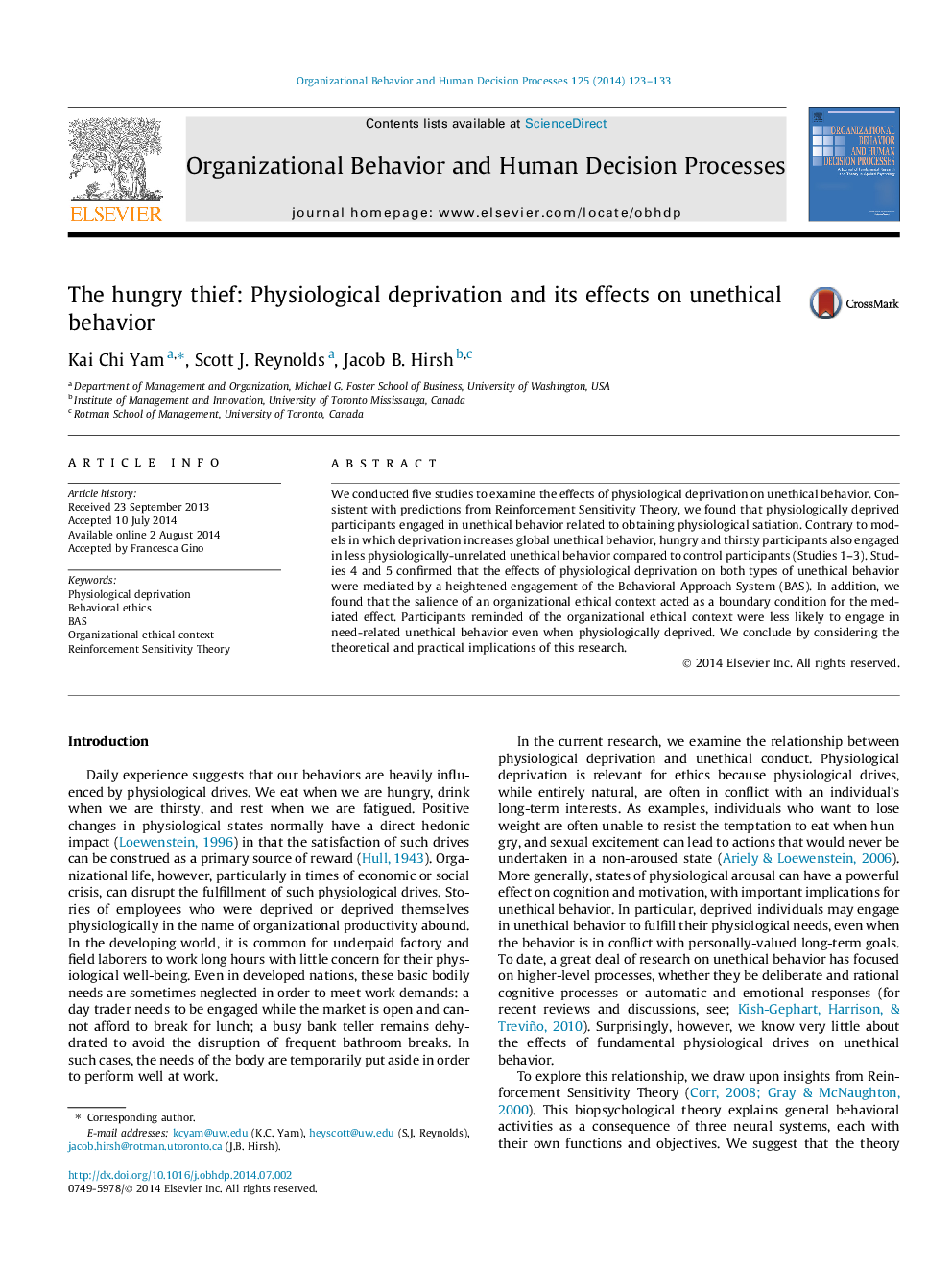| کد مقاله | کد نشریه | سال انتشار | مقاله انگلیسی | نسخه تمام متن |
|---|---|---|---|---|
| 888536 | 913546 | 2014 | 11 صفحه PDF | دانلود رایگان |
• Physiologically deprived (PD) participants engaged in more need-related unethical behavior.
• PD participants engaged in less need-unrelated unethical behavior.
• Behavioral Activation System (BAS) fully mediates this relationship.
• Organizational ethical context moderates this relationship.
We conducted five studies to examine the effects of physiological deprivation on unethical behavior. Consistent with predictions from Reinforcement Sensitivity Theory, we found that physiologically deprived participants engaged in unethical behavior related to obtaining physiological satiation. Contrary to models in which deprivation increases global unethical behavior, hungry and thirsty participants also engaged in less physiologically-unrelated unethical behavior compared to control participants (Studies 1–3). Studies 4 and 5 confirmed that the effects of physiological deprivation on both types of unethical behavior were mediated by a heightened engagement of the Behavioral Approach System (BAS). In addition, we found that the salience of an organizational ethical context acted as a boundary condition for the mediated effect. Participants reminded of the organizational ethical context were less likely to engage in need-related unethical behavior even when physiologically deprived. We conclude by considering the theoretical and practical implications of this research.
Journal: Organizational Behavior and Human Decision Processes - Volume 125, Issue 2, November 2014, Pages 123–133
